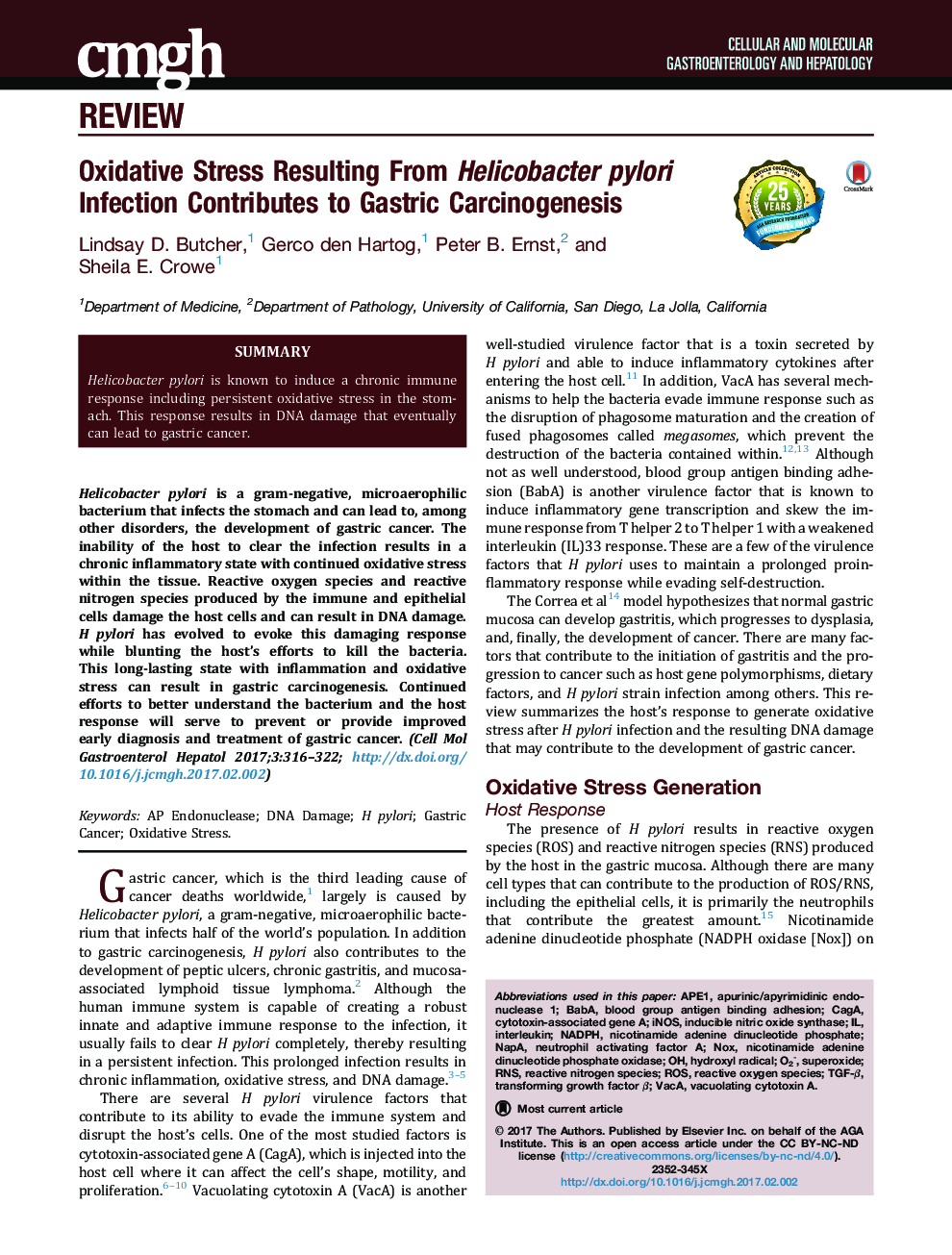| Article ID | Journal | Published Year | Pages | File Type |
|---|---|---|---|---|
| 5517221 | CMGH Cellular and Molecular Gastroenterology and Hepatology | 2017 | 7 Pages |
Helicobacter pylori is a gram-negative, microaerophilic bacterium that infects the stomach and can lead to, among other disorders, the development of gastric cancer. The inability of the host to clear the infection results in a chronic inflammatory state with continued oxidative stress within the tissue. Reactive oxygen species and reactive nitrogen species produced by the immune and epithelial cells damage the host cells and can result in DNA damage. H pylori has evolved to evoke this damaging response while blunting the host's efforts to kill the bacteria. This long-lasting state with inflammation and oxidative stress can result in gastric carcinogenesis. Continued efforts to better understand the bacterium and the host response will serve to prevent or provide improved early diagnosis and treatment of gastric cancer.
